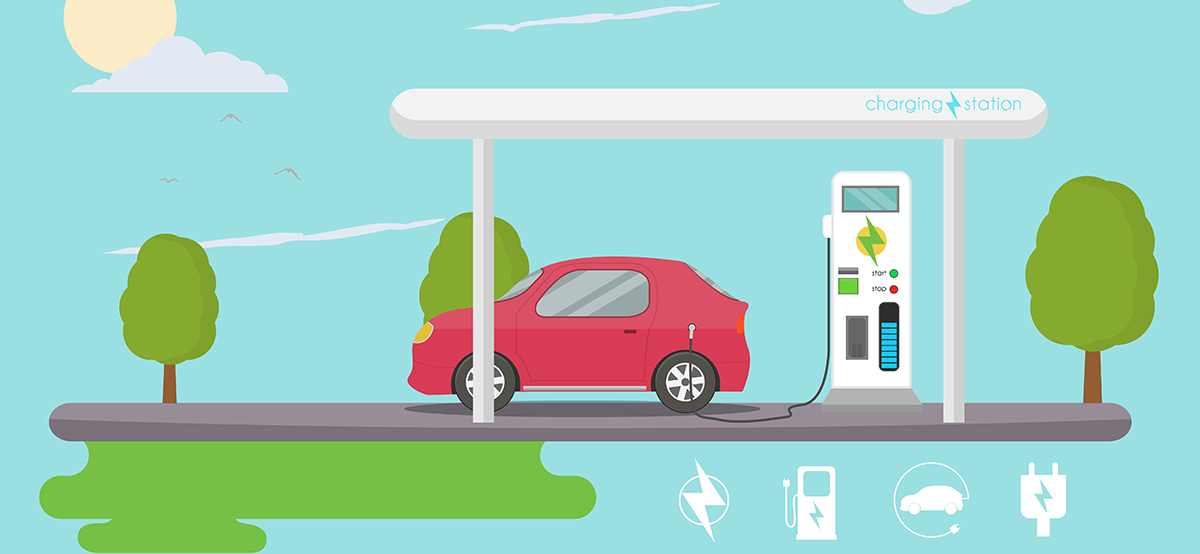
 Your Credit Estimate
Your Credit Estimate
 Your Credit
Your Credit
Your zip code helps us provide you with the most accurate vehicle pricing and vehicle availability.
We estimate your credit score to give you an idea of your monthly payments. To get an accurate payment amount, complete our credit application by clicking the Start Credit Application button below.
start credit application
Some people talk about hybrid cars like they talk about their Gluten free diet -- they just don’t stop. But if you don’t know one of “those” hybrid owners, since hybrids (PHEVs) and electric vehicles (EVs) first came out, the talk about them has generally quieted down. In case you have forgotten what makes them unique and if they are worth the cost -- here is a quick overview of some finance benefits of buying a hybrid.
First, there's big savings when you purchase the car.
Everyone who buys a qualified EV receives a federal income tax credit of $7,500 from the federal government. PHEVs are also available for a federal income tax credit, but depending on the capacity of the battery used to power the vehicle, the credit can fall in the range of a few thousand to $7,500. This website provides the values of all of the credits for the various PHEVs and EVs available in the U.S., www.fueleconomy.gov/FEG/taxevb.shtml. Even better, state and local tax incentives may also be able, so be sure to check out your local area to see if there are further credits.
Second, over the years you will save ...
Below are the cost differences between a 2015 Toyota Prius, the most popular hybrid of 2015, which gets 51 MPG city and 48 MPG highway and a car that gets an average of 23 MPG city and 29 MPG highway. The numbers are based on the average driver who drives 15,000 miles a year -- 45% on the highway and 55% in the city.
If gas prices stay at the current national average, $1.70 per gallon, a Prius will save a driver $515 per year and $2,573 in five years. These savings get even larger if the price of gas rises. At $2.50 per gallon, a Prius driver will save $3,613 in gas over the course of five years. And, if prices rise back to the national average in 2014, which was $3.43 per gallon, the Prius driver will save $4,957 on the cost of gas over the course of five years. That’s a lot of money.
Third, warranties on a car’s hybrid or electric systems, typically cover more miles and years than gas-powered powertrains.
Almost all warranties offered by manufactures on the system related to the hybrid or electric functioning of the car, are better than most manufacturer warranties on a fuel-powered car’s powertrain.
Chevrolet, which includes hybrid vehicles like the Chevy Volt and Chevy Spark (the all-electric Chevrolet Bolt coming soon) and Toyota, a maker of several hybrid vehicles, cover their hybrid systems (including the battery) for 8 years or 100,000 miles. However, both manufacturers only cover the powertrain with a five-year or 60,000-mile warranty.
The Environment?
While EVs or PHEVs don’t “make” the environment any healthier, driving these cars does decrease the total amount of negative effects that gas and diesel powered engines have on the environment. But they are not flawless and the total amount of environmental benefits is unclear. Before getting a hybrid for environmental reasons, potential buyers should consider ...
Several car publications like, Caranddriver.com, have chosen the Chevrolet Volt as the “top pick” among the 2016 hybrid vehicles and the Kia Soul and Chevrolet Spark as “top picks” among the 2016 all-electric vehicles. NowCar.com has each of these vehicles available for purchase, lease and delivery. Here’s some information on each of those vehicles, but be sure to check out the rest of our site for more information -- we have tons!
2016 Chevrolet Volt
MPGe: 43 city / 42 hwy.
The Chevy’s Volt gasoline-hybrid powertrain offers impressive all-electric range of 53 miles; after that, gas engine starts up to recharge the battery. Combining fuel and electricity, the Volt’s total driving range is 420 miles.
2016 Kia Soul EV
MPGe: 120 city / 92 hwy.
Combining style, zero emissions, money savings and safety -- the Kia Soul EV is a great fully-electric vehicle. The 5-passenger Soul EV has a best-in-class estimated driving range of 93 miles on a fully-charged battery. The car generates 109-horsepower, 210-torque lb.-ft and is equipped with regenerative braking.
2016 Chevrolet Spark EV
MPGe: 128 city / 109 hwy.
The Chevy Spark EV features an innovative electric propulsion system drive unit paired with a lithium-ion battery making it best-in-class when it comes to torque. In addition to regenerative braking, the Spark also uses liquid thermal conditioning, which maximizes its performance in extreme weather conditions.